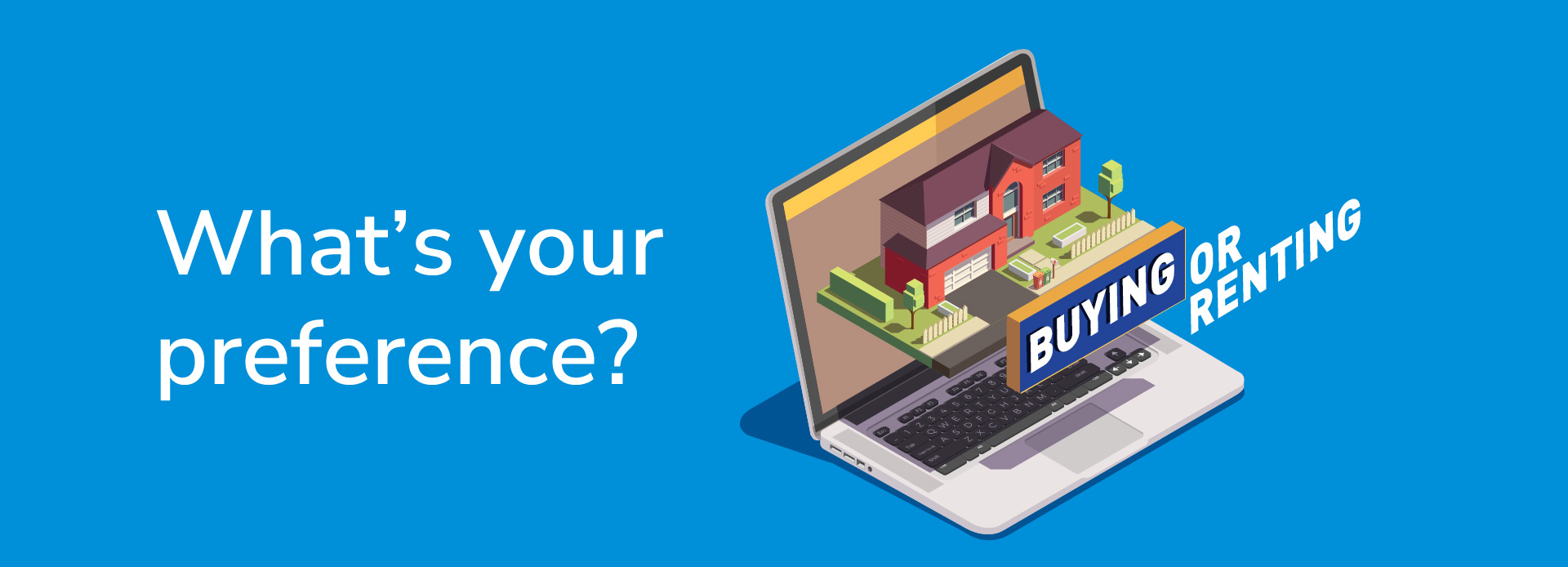
Buying or Renting a house: What’s the right move for you?
09 November 2023
The dream of owning a home is deeply ingrained in the Indian psyche. It's often seen as a significant milestone in one's life and a symbol of financial stability and success. However, in recent years, the trend of renting a house has gained momentum, challenging the traditional notion of homeownership. Let's explore the pros and cons of buying a house versus renting, considering the unique context of India.
The Case for Buying
Long-Term Investment: Owning a house can be a long-term investment that appreciates over time. Historically, property values in India have shown an upward trend, making real estate a potentially lucrative investment.
Emotional Security: There's a sense of security that comes with having a permanent roof over your head. Owning a home provides stability, a place to call your own, and the freedom to customize your space.
Tax Benefits: The Indian government offers tax incentives to homebuyers. Home loan interest and principal repayments are eligible for deductions under sections 24(b) and 80C of the Income Tax Act, respectively.
Asset for Future Generations: Homeownership can be a legacy to pass on to future generations. It ensures that your family has a place to live and can be a valuable asset for them.
The Case for Renting
Financial Flexibility: Renting a house provides financial flexibility, especially in the short term. There's no need for a substantial down payment, and you're not responsible for property maintenance or repairs.
Variety and Mobility: Renting allows you to explore different neighbourhoods It depends on your financial situation, lifestyle preferences, and long-term goals and types of homes without being tied down to one location. This is particularly advantageous for those who have to move frequently for work.
Reduced Financial Risk: Property prices can be volatile, and the real estate market can go through cycles. Renting can protect you from market fluctuations and the risk of a housing bubble.
Liquid Assets: By not investing a large portion of your savings in a house, you can keep your funds liquid and available for other investment opportunities or emergencies.
Financial Considerations
The financial aspects of buying and renting a house in India are critical factors that influence the decision-making process.
Down Payment: Buying a house typically requires a substantial down payment, often 20% of the property's value. This can be a significant financial burden.
EMI vs. Rent: When you buy a house with a home loan, you'll have to pay Equated Monthly Instalments (EMIs) that include both interest and principal. In contrast, renting involves a fixed monthly rent. Depending on your financial situation, one might be more affordable than the other.
Maintenance Costs: As a homeowner, you are responsible for maintenance and repairs, which can be unpredictable and expensive. Renters are usually exempt from these costs.
Location Matters
In India, the decision to buy or rent is often influenced by the city or region you live in. In metropolitan cities like Mumbai, Delhi, and Bangalore, property prices are exorbitant, making it challenging for many to buy a house. Renting becomes the more practical option for those looking for a convenient lifestyle.
In contrast, in smaller towns and cities where property prices are relatively lower, buying a house might be a more attainable goal. It's also important to consider factors like commute time, access to amenities, and the local real estate market's stability when making your decision.
Changing Demographics
The demographic landscape in India is shifting, and this is impacting the housing market. Young professionals and millennials are increasingly valuing mobility and freedom over homeownership. Many prioritize experiences over possessions and are comfortable with the idea of renting.
Additionally, the gig economy and remote work have made it more common for individuals to move for job opportunities. In such cases, renting a house is the practical choice, as it allows for easy relocation without the hassle of selling property.
Government Initiatives
The Indian government has introduced various initiatives and incentives to promote affordable housing, making it easier for individuals to buy a home. Programs like the Pradhan Mantri Awas Yojana (PMAY) offer subsidies on home loan interest for economically weaker sections. These initiatives can make buying a house more accessible and attractive for some.
The Verdict: It Depends
There's no one-size-fits-all answer when it comes to the question of buying vs. renting a house in India. Your financial situation, lifestyle preferences, and long-term goals are what determine it.
For those who value stability and consider a house an investment, buying may be the right choice. However, for individuals who prioritize flexibility, financial freedom, and variety, renting can be a more suitable option.
Ultimately, the decision should align with your financial objectives and personal circumstances. It's essential to weigh the pros and cons carefully and, if possible, seek guidance from financial experts before making this significant decision. Whether you choose to buy or rent, the key is to create a comfortable and secure living environment that aligns with your aspirations and goals.
Disclaimer: The information provided in this article is generic in nature and for informational purposes only. It is not a substitute for specific advice in your own circumstances. Hence, you are advised to consult your financial advisor before making any financial decision. IndusInd Bank Limited (IBL) does not influence the views of the author in any way. IBL and the author shall not be responsible for any direct/indirect loss or liability incurred by the reader for taking any financial decisions based on the contents and information.




